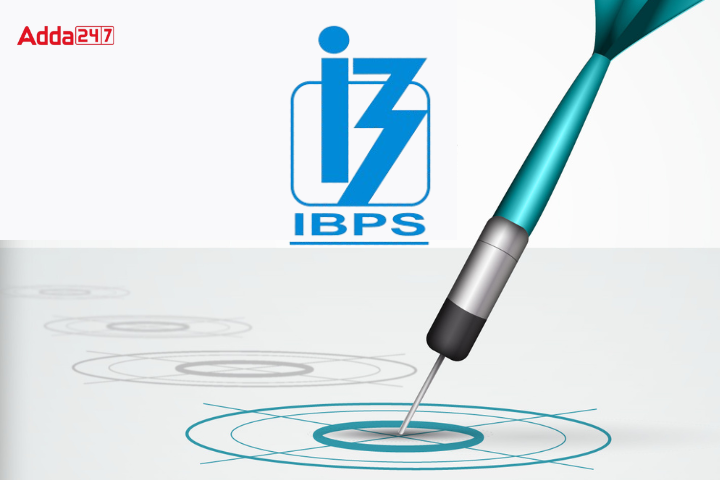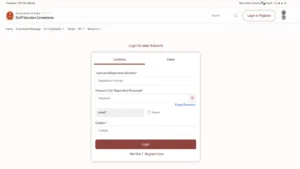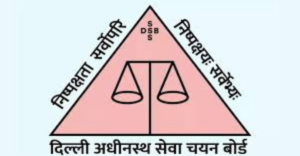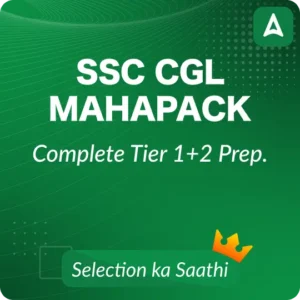The IBPS AFO Recruitment is conducted by the Institute of Banking Personnel Selection every year to appoint qualified candidates for the Agriculture Field Officer (AFO) post. Candidates serious about cracking the IBPS AFO 2026 must have the right strategy for studying effectively, especially for first-time aspirants. To guide aspirants in their preparation journey, we have compiled some of the most helpful study strategies to help candidates crack IBPS AFO 2026 in their first attempt.
How To Crack IBPS AFO 2026 In First Attempt?
Cracking the IBPS AFO 2026 on the first attempt is not easy, as the exam is highly competitive and one of the most sought-after opportunities amongst agriculture aspirants in India. The selection process consists of three stages: Prelims, Mains, and Interviews. In this article, we have provided the best IBPS AFO preparation strategy to help aspirants clear the cutoff in first attempt.
Understand The Exam
Understanding the exam pattern and syllabus is very important before starting preparation for any exam. The first and foremost thing that the aspirants must do is go through the complete IBPS AFO Syllabus to learn about what topics are included in the exam. Along with this, candidates must clearly understand the exam format of all stages, including the number of questions, total marks, exam duration, marking scheme, etc.
Making the Plan
Cracking IBPS AFO in the first attempt requires not just hard work but also a well-structured study plan. The key is to balance all subjects for preparation. Since most aspirants prepare alongside jobs or college, the plan should be practical and should not burden you. is a realistic daily timetable you can follow:
Morning Session (Before Work/College / Fresh Hours)
- 6:00 – 6:30 AM: Revise short notes (formulas, vocab, agriculture schemes).
- 6:30 – 7:30 AM: Professional Knowledge (Agriculture) – pick 1 topic daily (e.g., cropping systems, soil science, irrigation, plant breeding).
Afternoon / Break Time (If Possible)
- 1:30 – 2:00 PM: Quick practice (5–10 reasoning/quant questions OR revise GK/Agri current affairs).
- Use commute/lunch breaks for vocabulary or listening to agriculture current affairs.
Evening Session (After Work/College)
- 7:30 – 8:15 PM: Quantitative Aptitude – focus on arithmetic and DI.
- 8:15 – 8:30 PM: Short break.
- 8:30 – 9:15 PM: Reasoning – practice puzzles, seating arrangement, syllogism.
- 9:15 – 9:30 PM: Break/Dinner.
- 9:30 – 10:00 PM: English Language – RC practice + grammar/vocab.
- 10:00 – 10:30 PM: Agriculture Revision – revise notes.
Night Wrap-Up
- 10:30 – 10:45 PM: Quick self-test (revise what you studied in the day).
Weekend Add-On
- Take 1 full Prelims mock test on Saturday and analyze mistakes.
- On Sunday, focus on Professional Knowledge (2–3 hours) + Revision of Prelims subjects.
Set A Goal
Aimless practice never pays off, while preparing it is very important to have a goal. Aspirants must divide their goals in daily, weekly and monthly goals. For example, a daily goal can be “I will take at least one sectional test of Quantitative Aptitude and revise 10 agriculture concepts” A weekly goal may be “I will complete 1 chapter of each subject”. Similarly, a monthly goal can be “I will complete 3-4 chapters of each subject”.
Use Mocks And Previous Year Papers
Mock and IBPS AFO Previous Year Papers are the easiest and smartest way to practice for any exam. Use authentic mock tests and previous year papers, mark the topics that are higher in weightage, and focus more on mastering them. Also, mark the questions you got wrong to avoid making those mistakes again. And start taking mock tests right from the beginning and avoid leaving them for only the last moment.
Revise What You Study
Revision is the key to retaining most of what you have studied. Instead of learning theory, preparing short notes, and maintaining formula notebooks, you may also use flash cards. Always analyze mistakes from mock tests and revise them weekly. Lastly, spend the final 15 minutes of your study routine revising what you have studied during the day to ensure long-term memory and faster recall during the exam.
Maintain A Health Lifestyle
While preparing for IBPS AFO, many aspirants tend to ignore their health, but a healthy body and mind are essential for effective study. Following a balanced lifestyle ensures better focus, energy, and memory retention. Eat nutritious meals rich in fruits, vegetables, and protein instead of relying on junk food. Ensure 7-8 hours of proper sleep daily, as sleep boosts concentration and recall power. Include light exercise, yoga, or meditation in your routine to manage stress and improve alertness. Also, avoid overuse of caffeine and take short breaks during long study sessions to prevent burnout.




 SSC MTS Admit Card 2026 OUT for Re-Exam,...
SSC MTS Admit Card 2026 OUT for Re-Exam,...
 DSSSB ASO Vacancy 2026 Out For 597 Assis...
DSSSB ASO Vacancy 2026 Out For 597 Assis...
 Rajasthan Lab Assistant Syllabus 2026, D...
Rajasthan Lab Assistant Syllabus 2026, D...




 Adda247 Job portal has complete information about all Sarkari Jobs and Naukri Alerts, its latest recruitment notifications, from all state and national level jobs and their updates.
Adda247 Job portal has complete information about all Sarkari Jobs and Naukri Alerts, its latest recruitment notifications, from all state and national level jobs and their updates.




